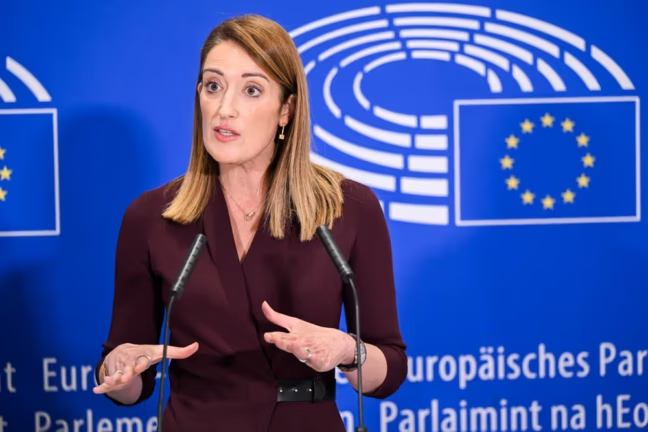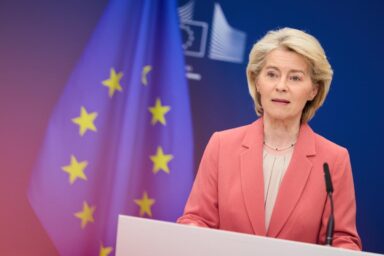It’s not every day that history is made in the European Parliament, but Thursday’s vote was one of those moments. A large majority of MEPs backed an amendment to the EU Electoral Act — a targeted change that would allow mothers during and after giving birth to delegate their vote for up to three months before and six months afterwards. Supporters said it was high time to update the act, which dates back to 1976.
The Committee on Constitutional Affairs drafted the legislative proposal, and the Parliament adopted it overwhelmingly, with 605 votes in favour, 30 against, and five abstentions for the accompanying resolution.
Rapporteur Juan Fernando López Aguilar (S&D/ESP) said: “No elected representative should ever have to choose between their vote and their child,” adding that proxy voting for MEPs on maternity leave would “strengthen democratic representation and ensure voters’ voices would continue to be heard.”
A big day
The president of the EU Parliament, Roberta Metsola, who championed the amendment, also highlighted how the new rules will make a difference for MEPs balancing parenthood and parliamentary duties.
“What this vote was about today – and I am happy for the more than 600 MEPs who supported it – is that we removed impediments that are currently in place that prevent pregnant members from voting. With this proposal we are doing just that: it means targeted change to the EU Electoral Act that would give our members, either who are pregnant or have just had a baby, the option to delegate their vote if they choose to do so.”
You might be interested
She stressed that Europe needs more women in politics, noting that only 38 per cent of MEPs are women. The Parliament now looks to the Council, meaning the 27 member states must ratify the decision in their own legislative chambers. “We need to get this done as soon as possible.”
Debate and dissent
Rapporteur López Aguilar noted that the Parliament had considered or was considering larger reforms, including proxy rights for fathers and all couples, though some far-right MEPs opposed this. He met with plenty of support from others in the chamber. During the debate, MEP Sandro Gozi (Renew/FRA) said:
“We are in 2025 and quite literally our electoral law belongs to another century. It was adopted in 1976 and is now completely obsolete. Today we are taking an important step: to allow women to reconcile motherhood with democratic participation – a long-awaited step towards modernity and justice. But our role here is to fully reflect on today’s society, and today care and responsibility belong equally to both parents. This is why our group also pushed for fathers to be included in the proxy vote.”

Shame
No debate would be complete without an attempted rebuttal: MEP Irmhild Boßdorf (of Alternative für Deutschland, aligned with ESN in the EU Parliament) criticised the amendment, saying that pregnancy was “not an illness” and that expecting MEPs were capable of fulfilling their democratic duties up until the last minute. She went as far as to suggest that those who had tabled it “should be ashamed.”
President Metsola capped her remarks by drily stressing that proxy voting is strictly voluntary. Later, at a related press conference marking the result, she also highlighted her personal experience, noting that she had been unable to vote on members of the commission around the time of giving birth.
“We need to make sure that if you are physically impeded, that you cannot travel to Strasbourg or Brussels, that you should not lose that right,” she said.
Next steps
The European Parliament vote is only the first step. The amendment will now go to the Council of the EU for discussion and approval by all 27 member states. After that, each member state’s national parliament must ratify the change according to its own procedures before the proxy voting rights for MEPs during and after pregnancy can formally take effect.











